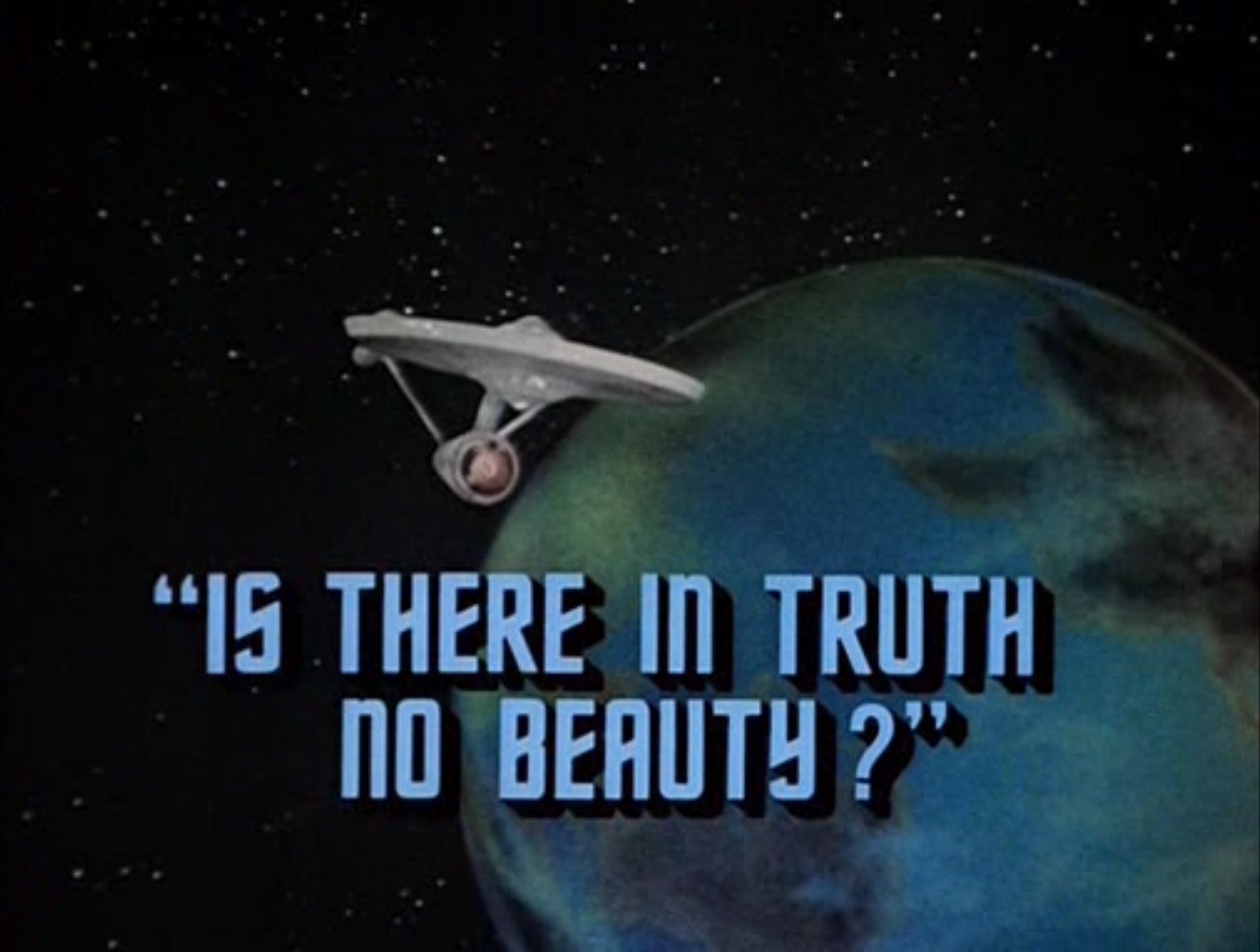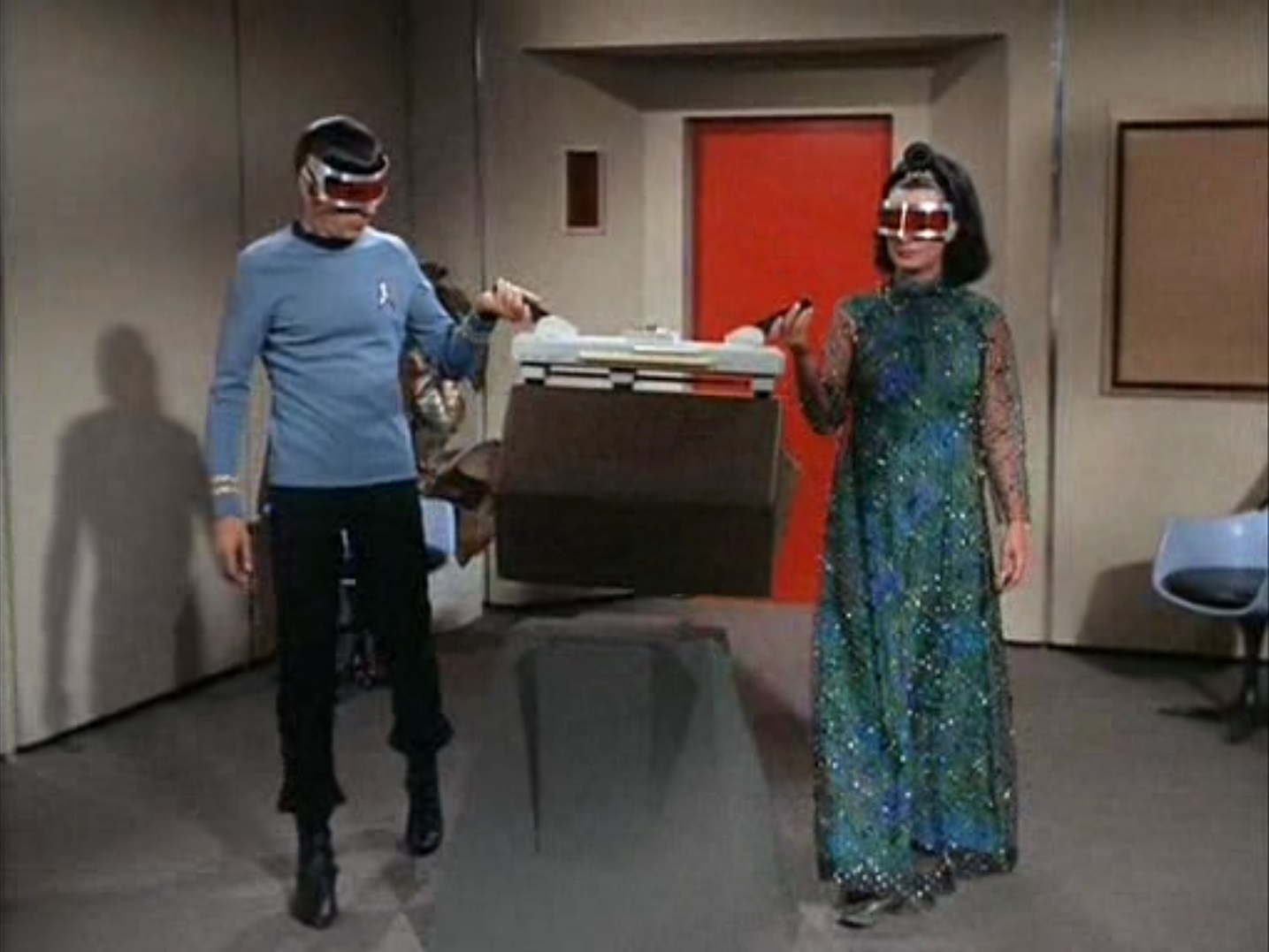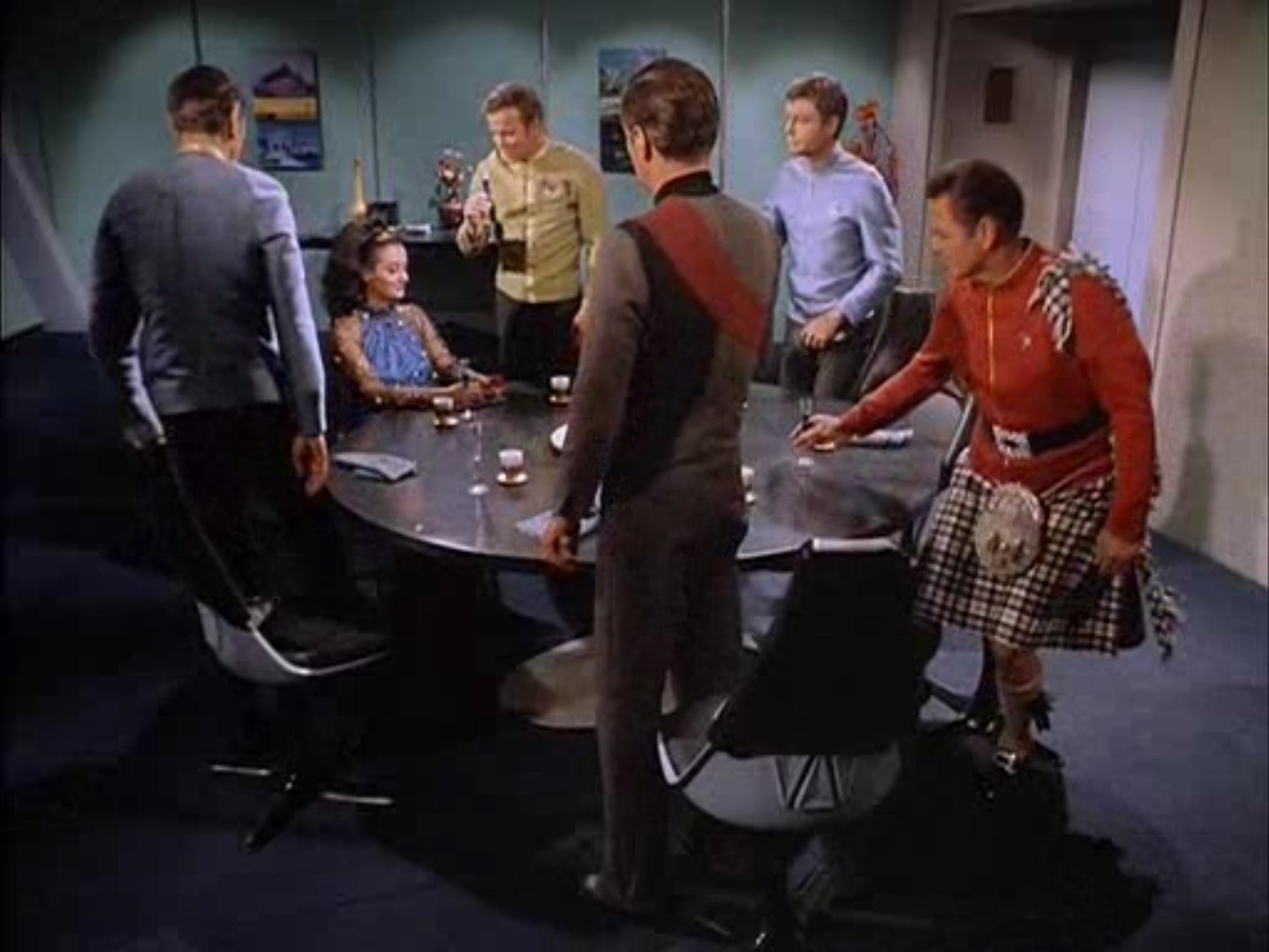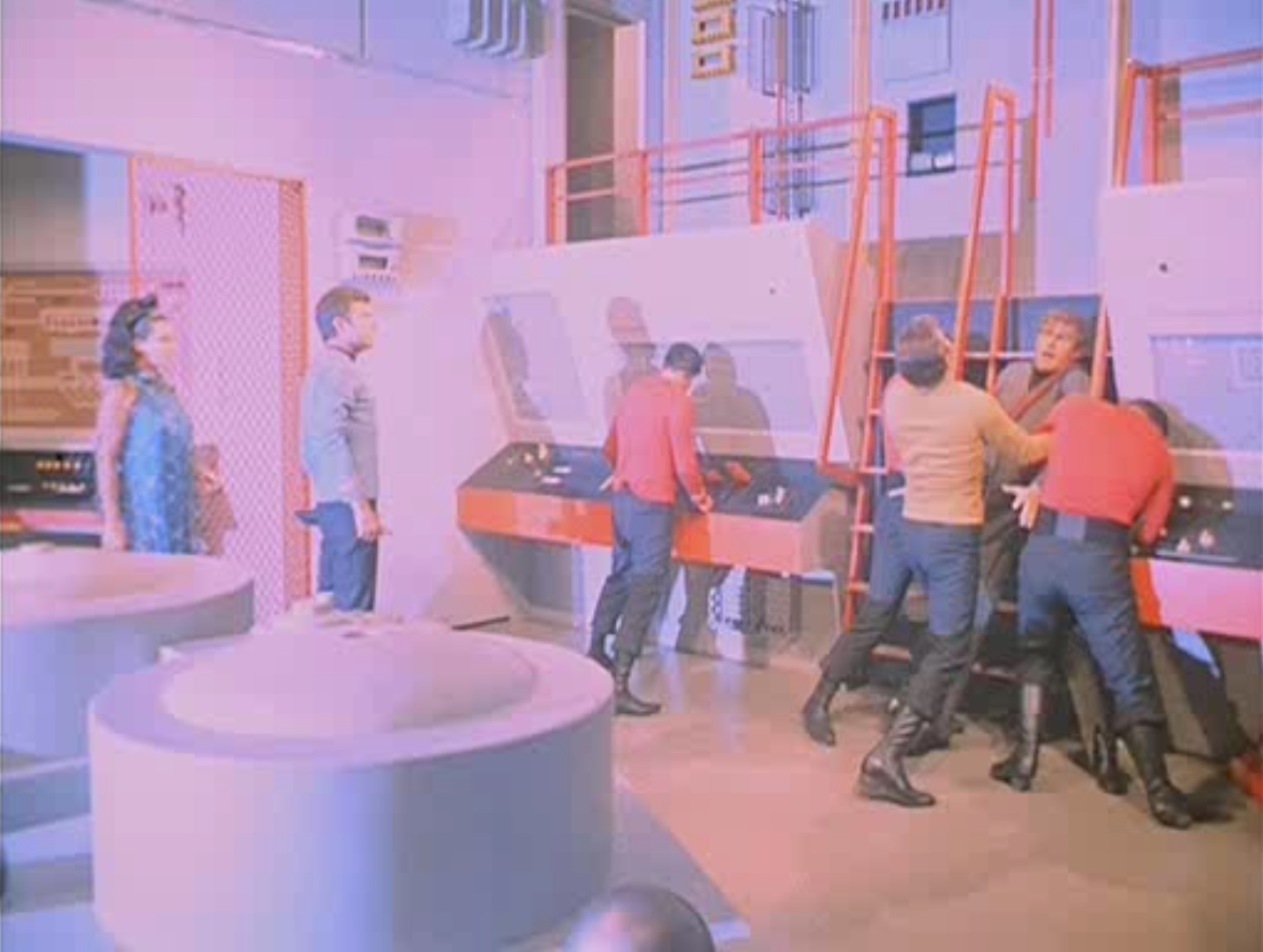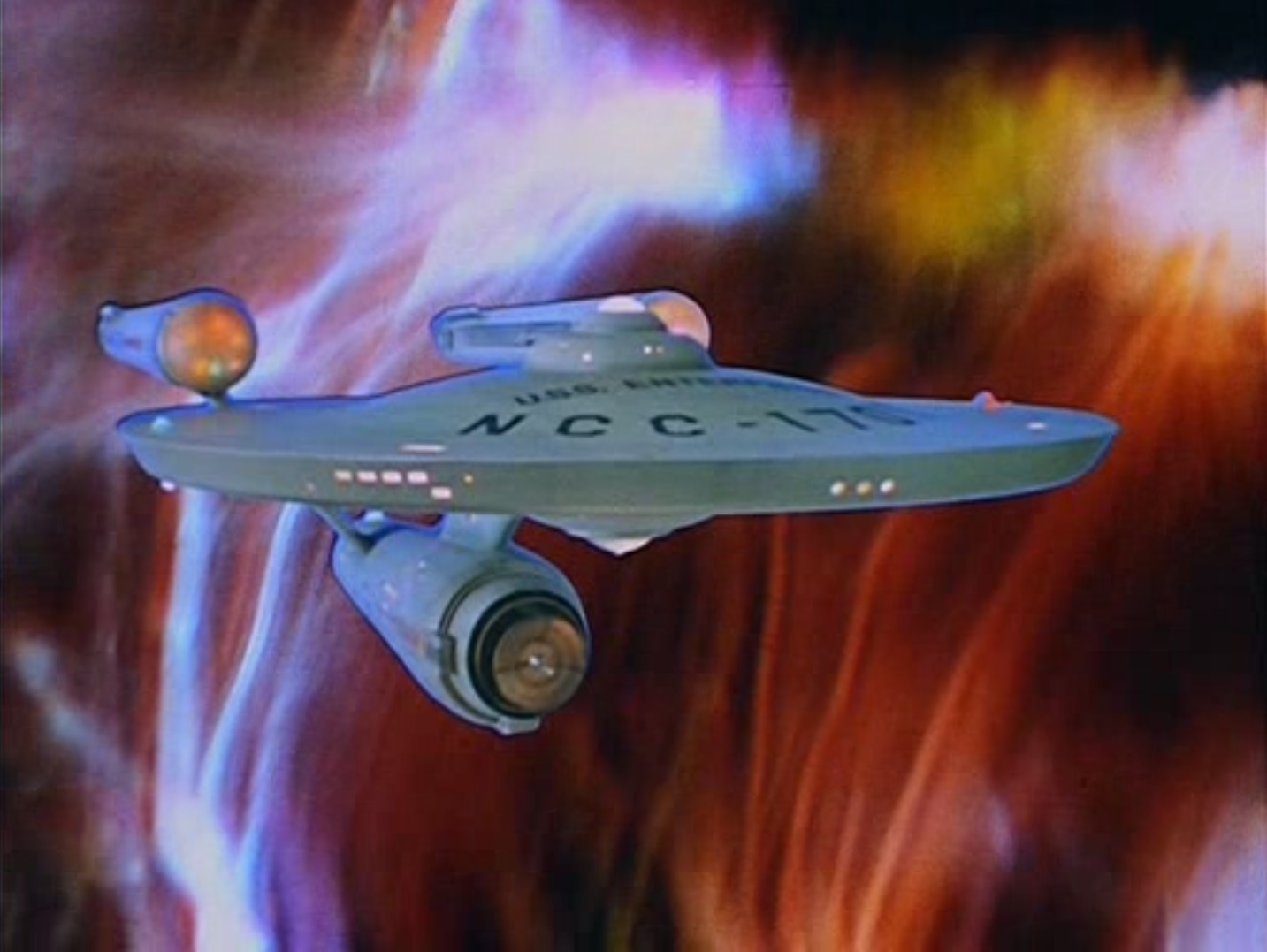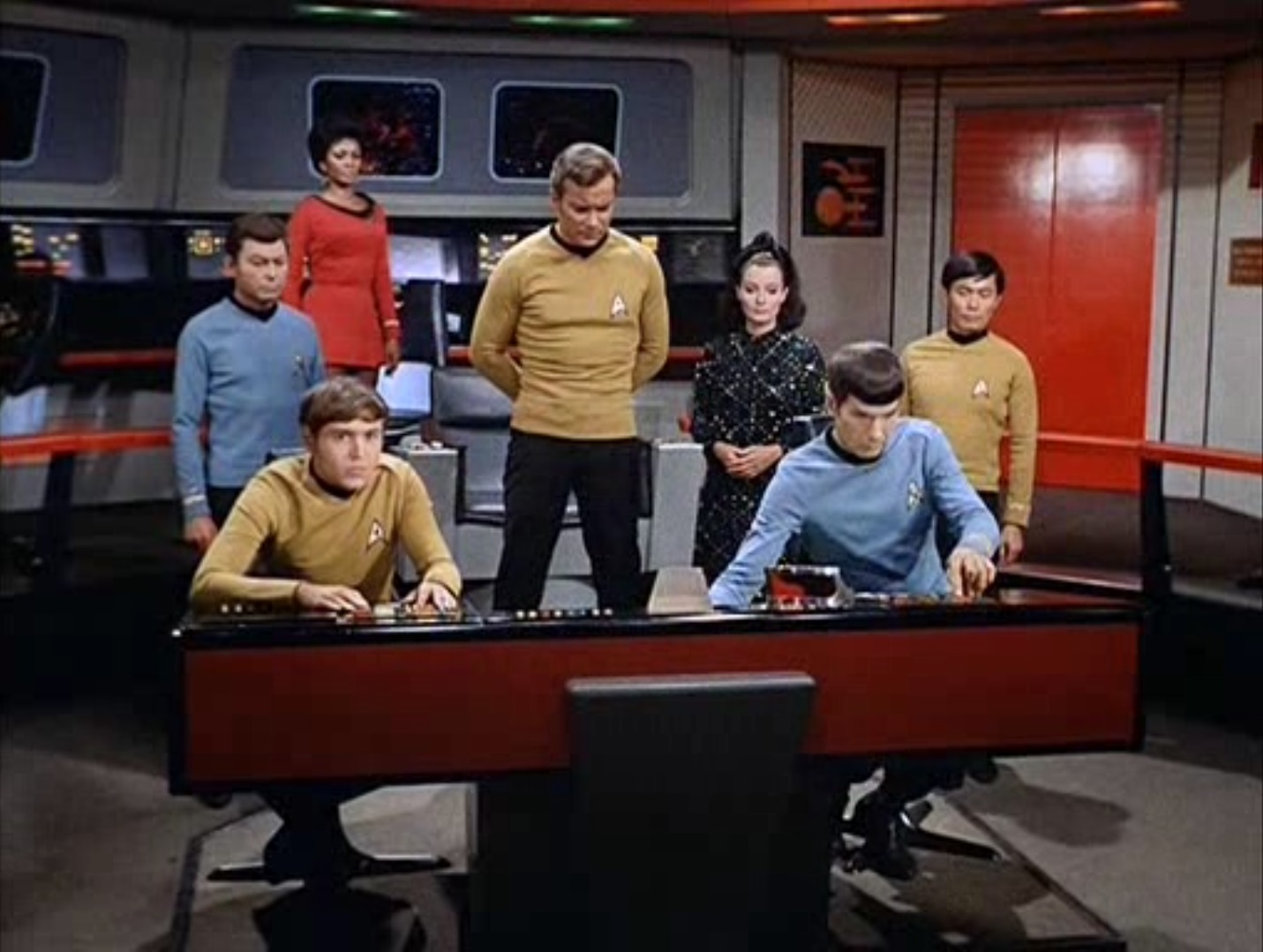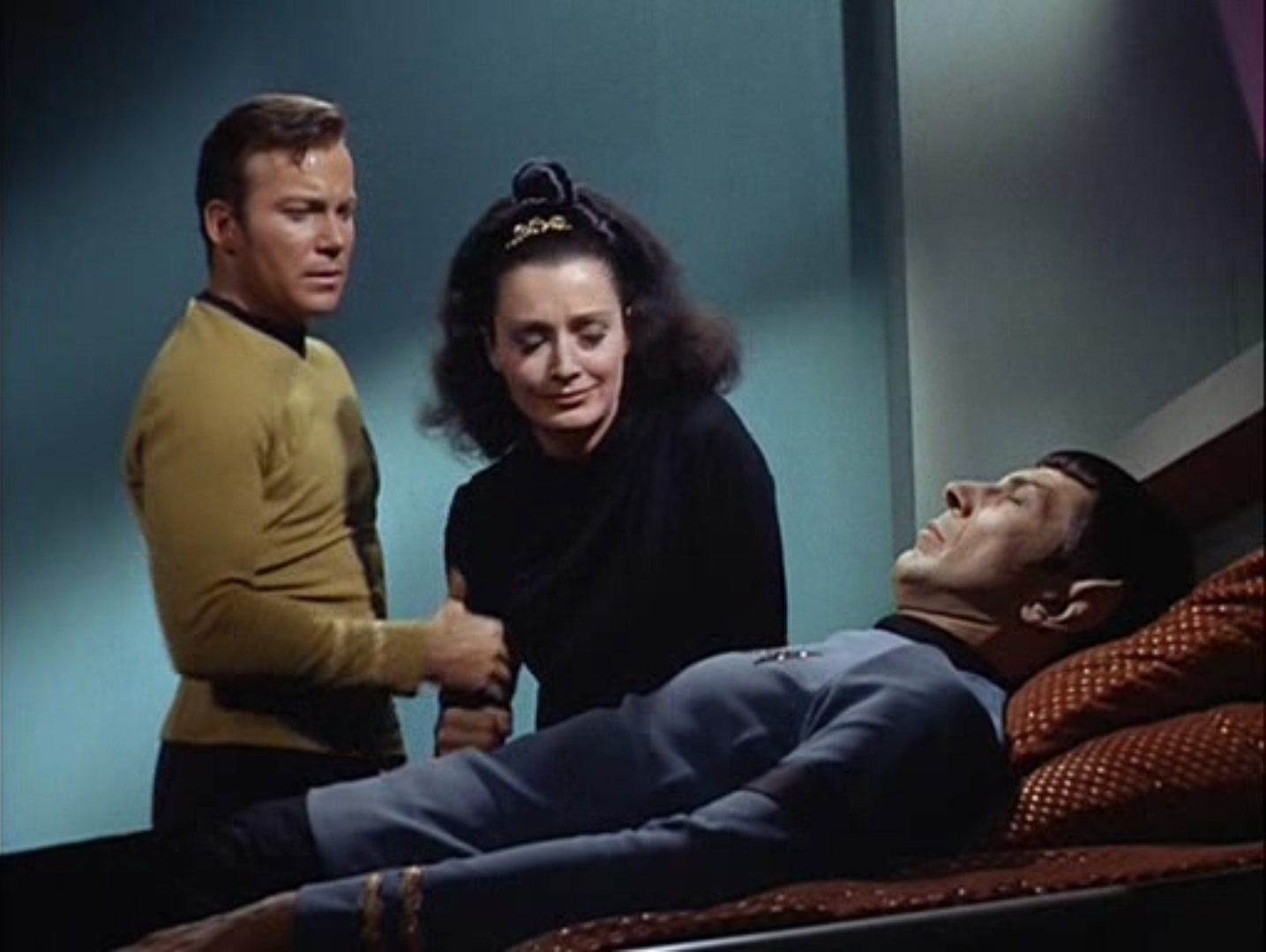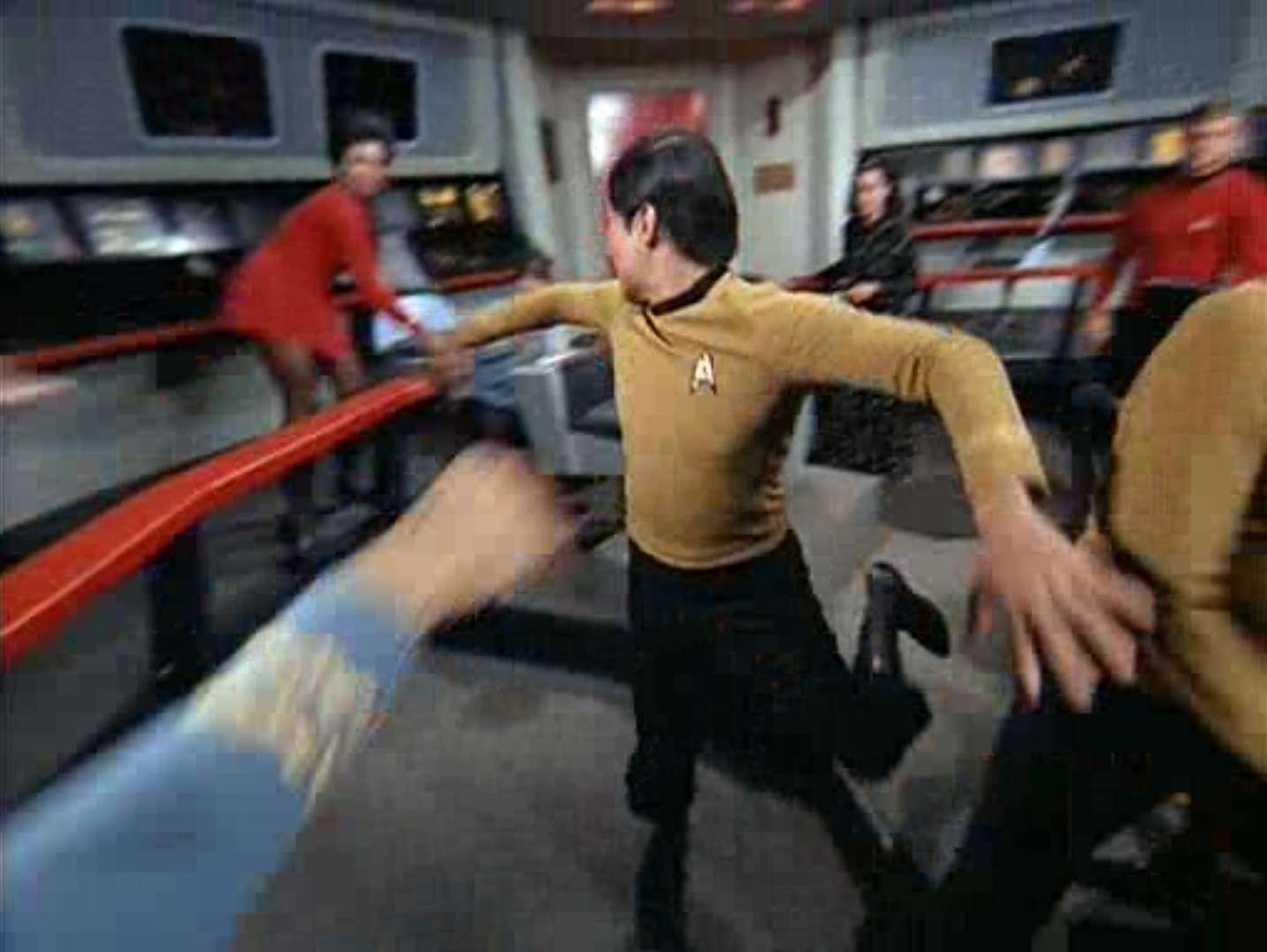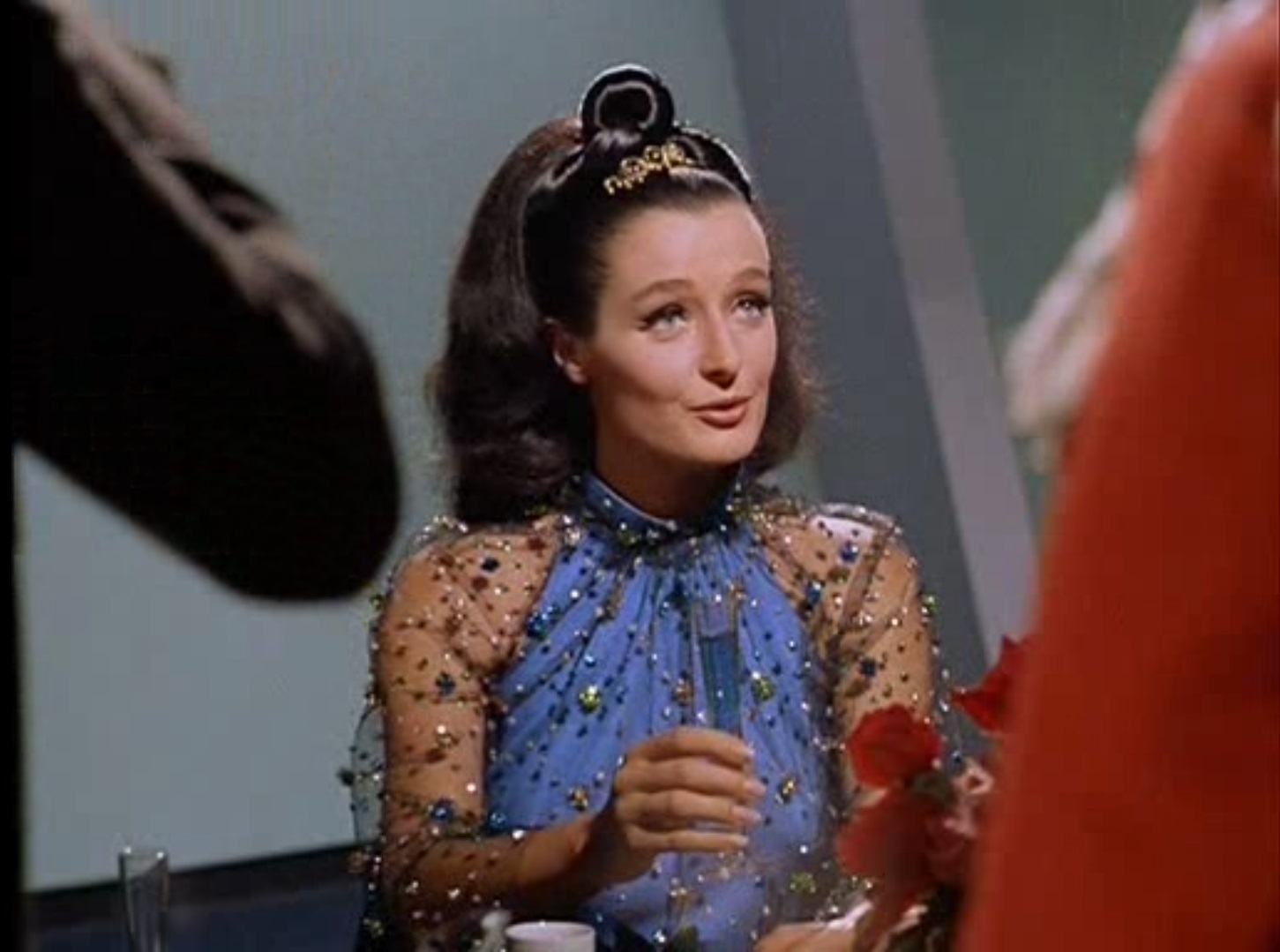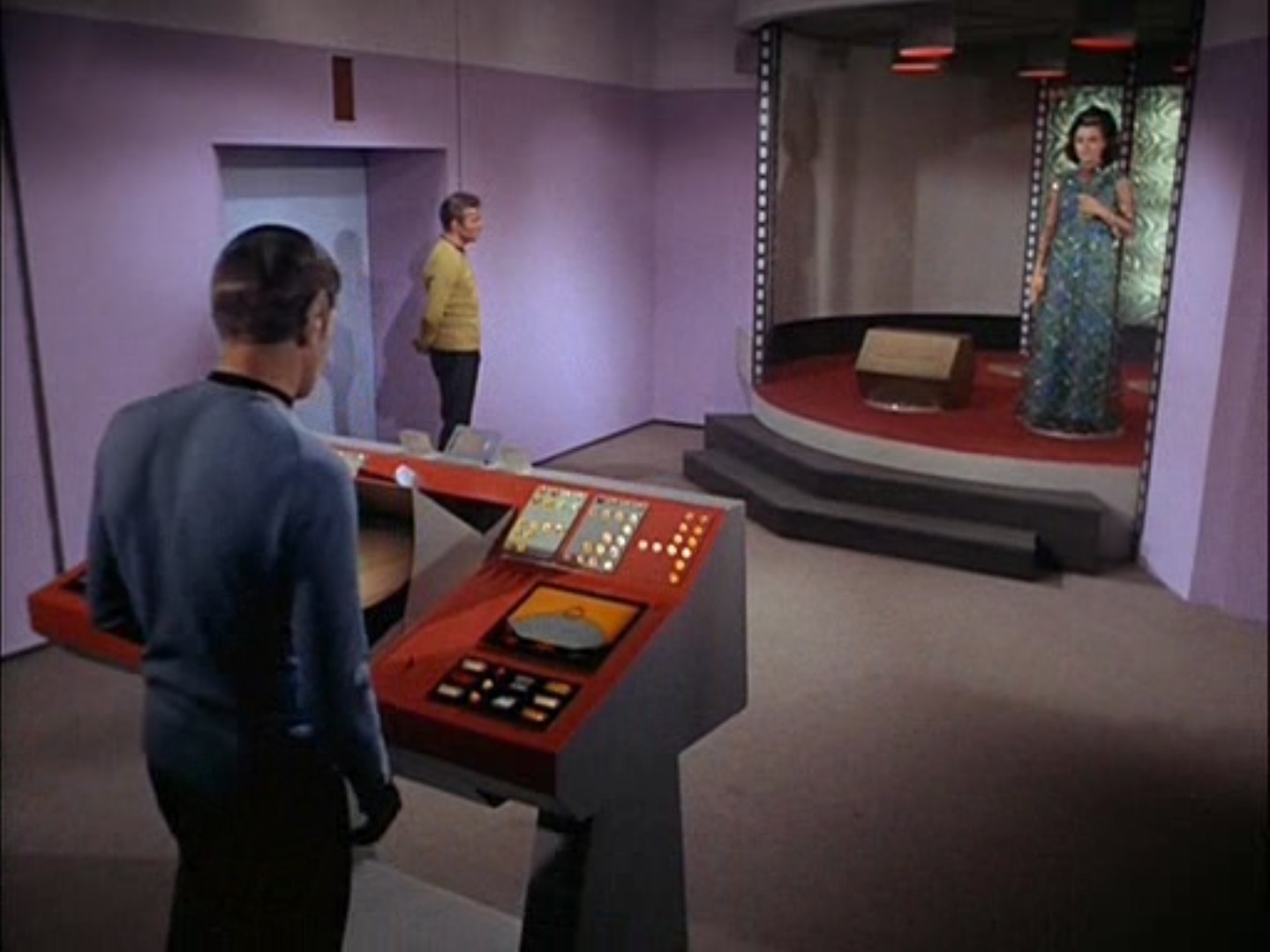
by Gideon Marcus
The other shoe dropped on February 17: Star Trek is officially canceled. Moreover, ABC won't pick it up for its "Second Season" in January. Fan efforts are being directed at CBS, but I can't say the prospects are promising.
One has to wonder if the decision was made due to the spate of lousy episodes that have plagued the second half of the Third Season. On the other hand, the decision was probably made based on the reaction to the first half of the season, which was actually quite good, so maybe Trek was always destined for the block.
This makes the latest episode, what appears to be the penultimate (if, indeed, they even air the last episode sometime in May after eight weeks of reruns and substitutions), particularly bittersweet. "All Our Yesterdays" is possibly Trek's finest hour, even as the clock ticks the show's last minutes.
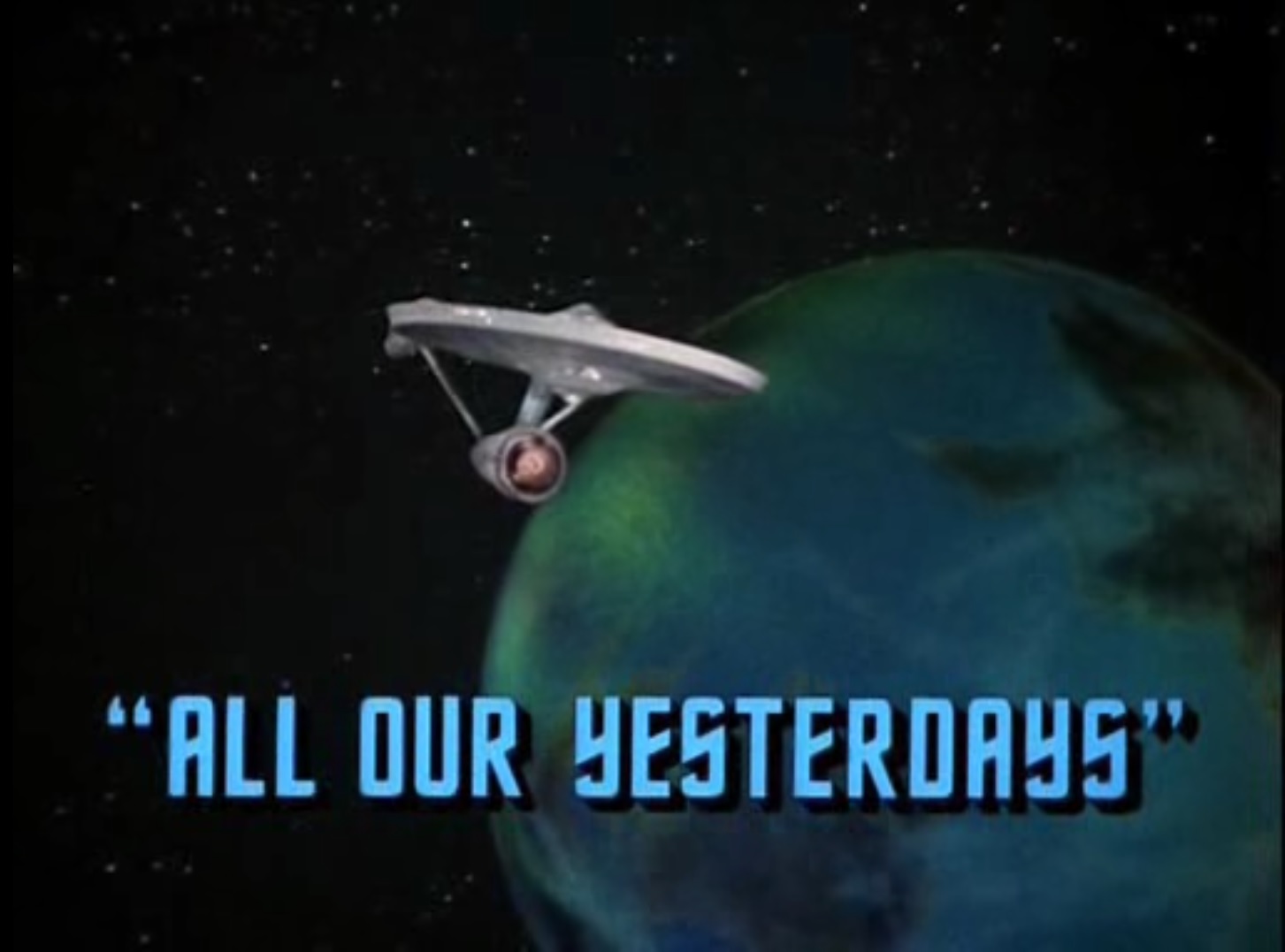
That the show is so good comes as no surprise; writer Jean Lisette Aroeste wrote the sublime "Is There in Truth No Beauty", and director Marvin Chomsky ran the excellent "Day of the Dove". It is also an unique episode in many ways, from the profusion of excellent sets, to the complete absence of the Enterprise from the show (a phenomenon I cannot recall occurring in any prior episode).
For those who missed it, Kirk, Spock, and McCoy beam down to the planet of Sarpedon, a civilized world doomed to be destroyed when its star, Beta Niobe, goes nova—in just a handful of hours. I guess they're there to pick up refugees (if so, there won't be very many…)
The Big Three find themselves in what looks like a post office or safety deposit box annex attended by an elderly Mr. Atoz. This fellow, assisted by several kindly replicas, is a "librarian" who has used his "Atavachron" (a great name for a time machine) to send all of the citizens of Sarpedon into the past, where they will be safe from the stellar explosion. Mr. Atoz assumes the three officers are Sarpedonites who are late to the party, and he gives them run of the archive to find eras to jaunt to.
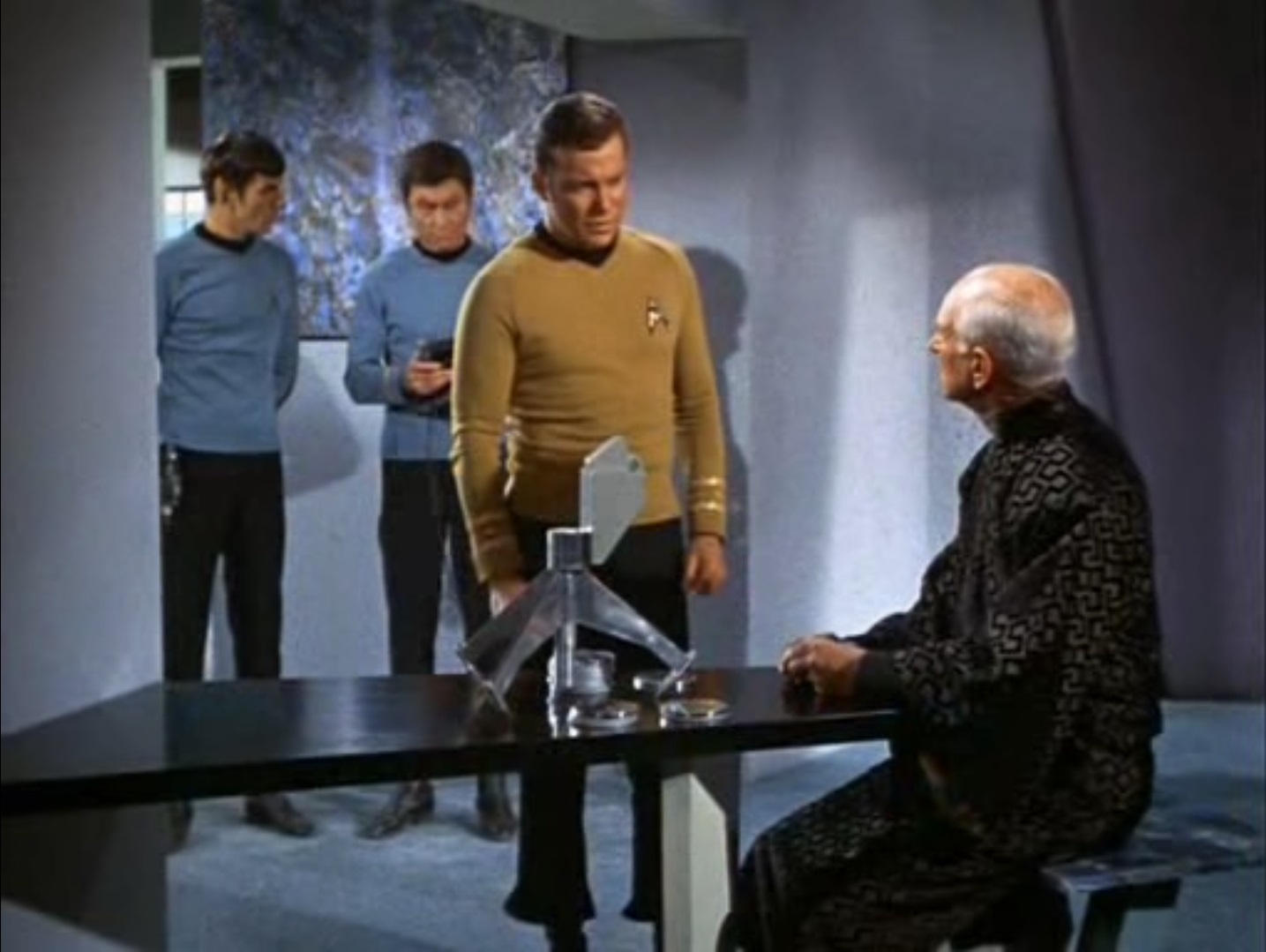
"You've run up some considerable overdue book fines, young man!"
Well, through misadventure, Kirk ends up in Cromwellian England, where he is locked up under accusation of witchcraft, and McCoy and Spock end up in the planet's last Ice Age, risking frostbite and worse. Apparently, Sarpedon's past is identical to that of Earth, which would be egregious if we hadn't seen similar phenomena in "Miri" and "Bread and Circuses". Indeed, this is actually a welcome data point rather than risible.
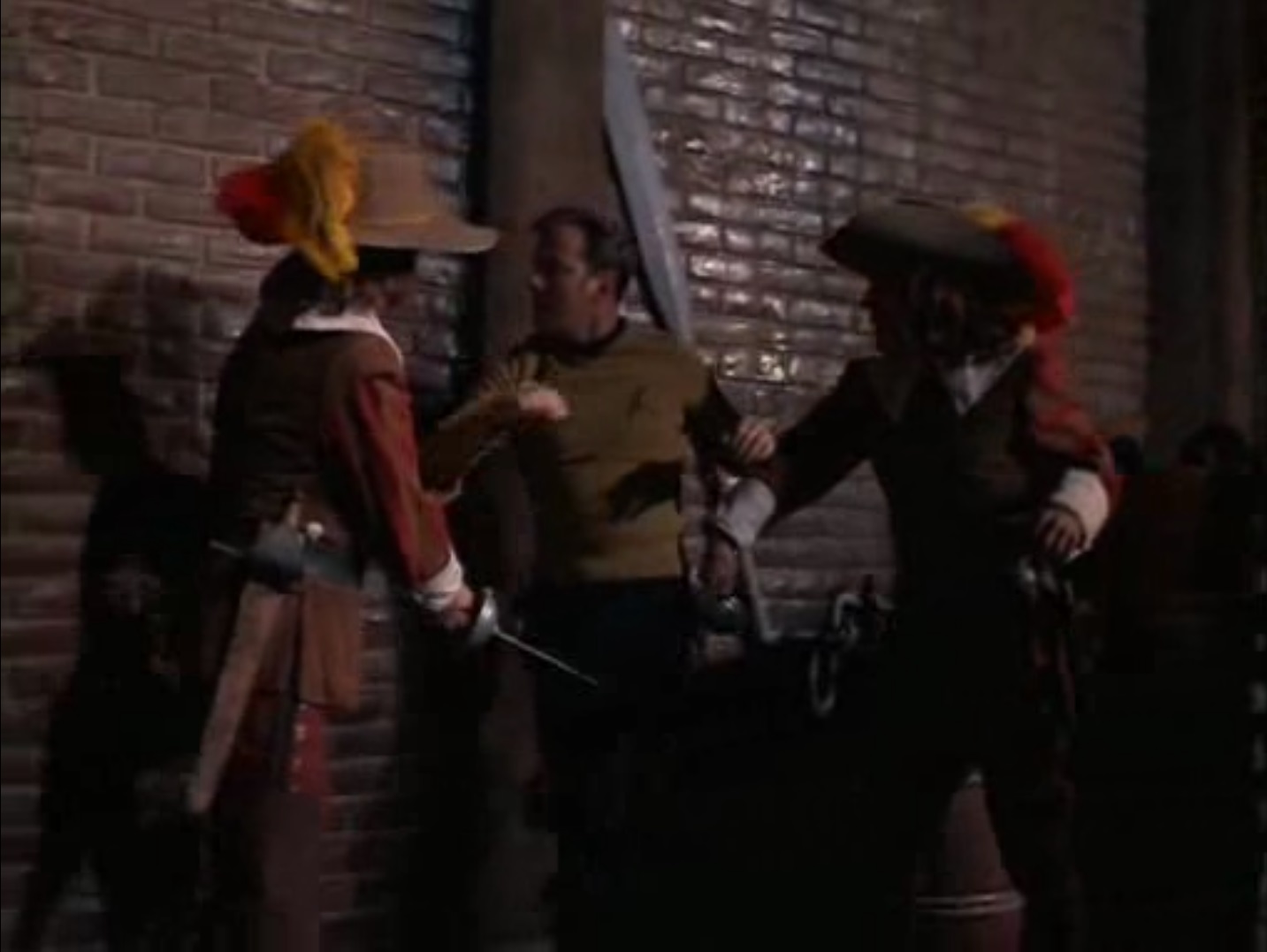
"You're under arrest, guv'nor…for overdue book fines!"
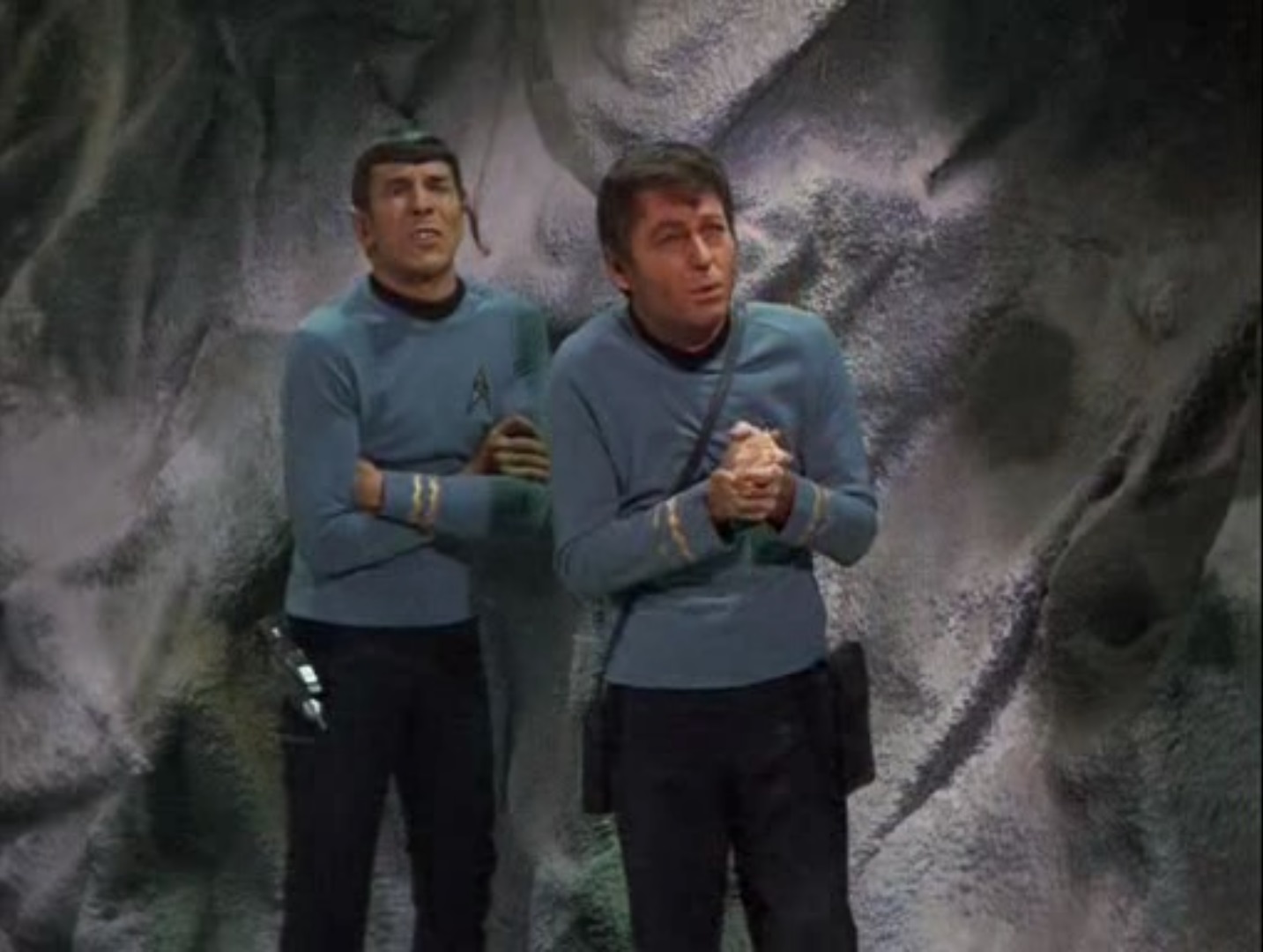
"It's colder than a witch's left…" "Agreed, Doctor."
Luckily for Kirk, his judge is one of the refugees from the future, who helps him find the portal back to the library. Luckily for the other two, a lovely woman named Zarabeth, exiled from a time prior to the Enterprise's era, rescues them and gives them refuge in her cave. She quickly falls for Spock (who wouldn't?) and the half-Vulcan finds himself reverting to savagery as a result of his psychic bond with primordial Vulcans of five thousand years ago. Spock peeves at McCoy, moons at Zarabeth, and acts the least Spocklike we've seen him since "This Side of Paradise" in a very honest and affecting way.
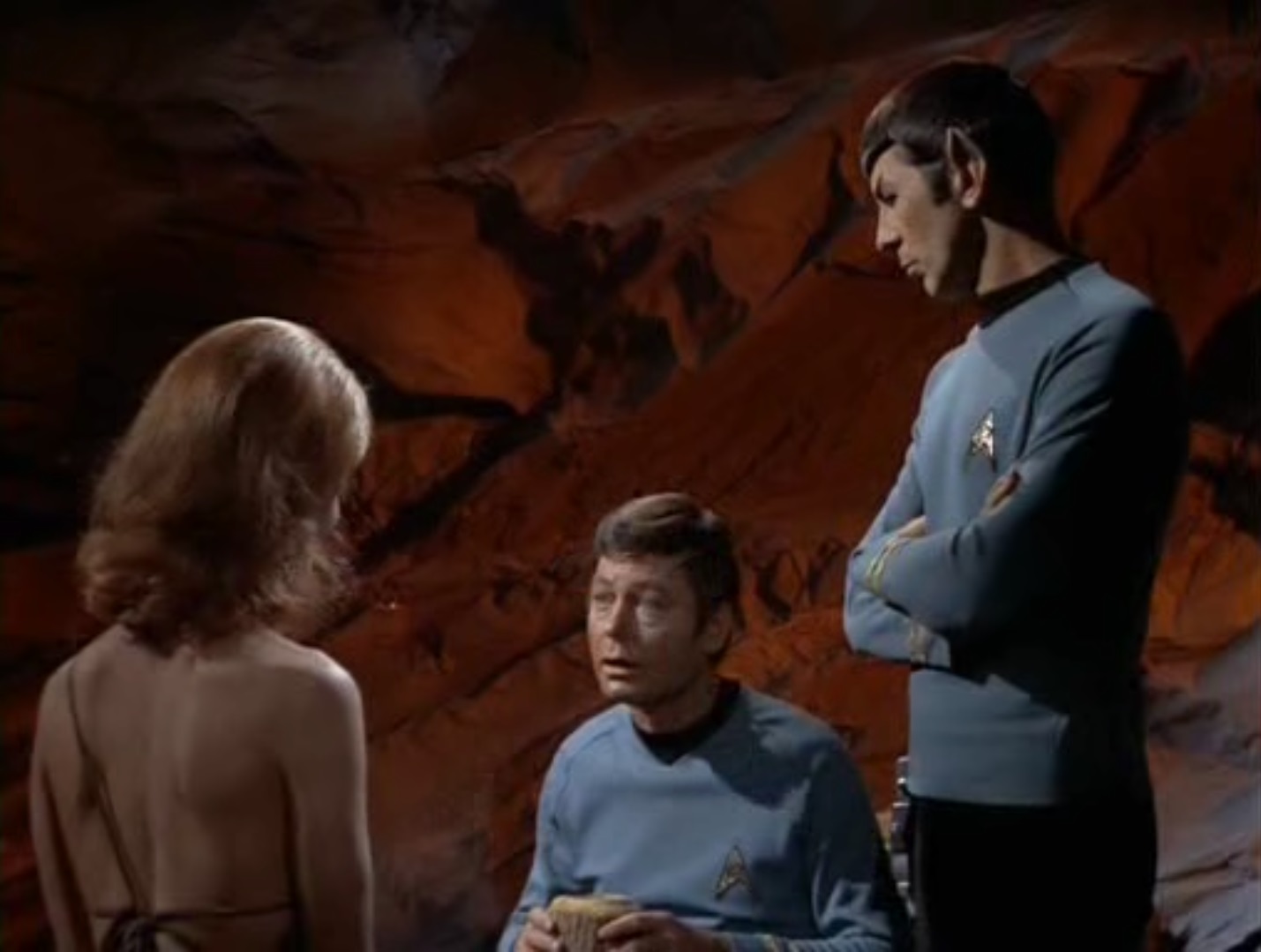
Bones convinces Spock to go back to where they arrived in the Ice Age so as to find their way back to the library, which they manage with the help of Kirk. Returned to his time, Spock becomes himself again, but not without a touch of subdued regret at the loss of yet another opportunity at love.
The pacing for this episode is leisurely but consistent, really letting us soak in the environs, the characters, their emotions. The Act-end cliffhangers are unusual and sometimes not even danger points. All of the cast turn in masterful performances, and the guests do as well—standouts include Mr. Atoz (the actor last seen in "Bread and Circuses") and the magistrate who saves Kirk. Mariette Hartley (Zarabeth) is fine, and there is no question that she is lovely, but it's the pickpocket who Kirk rescues in his era, with her period speech and game manner, who is truly memorable. The optical effects are stunning, particularly the Atavachron portal effect.
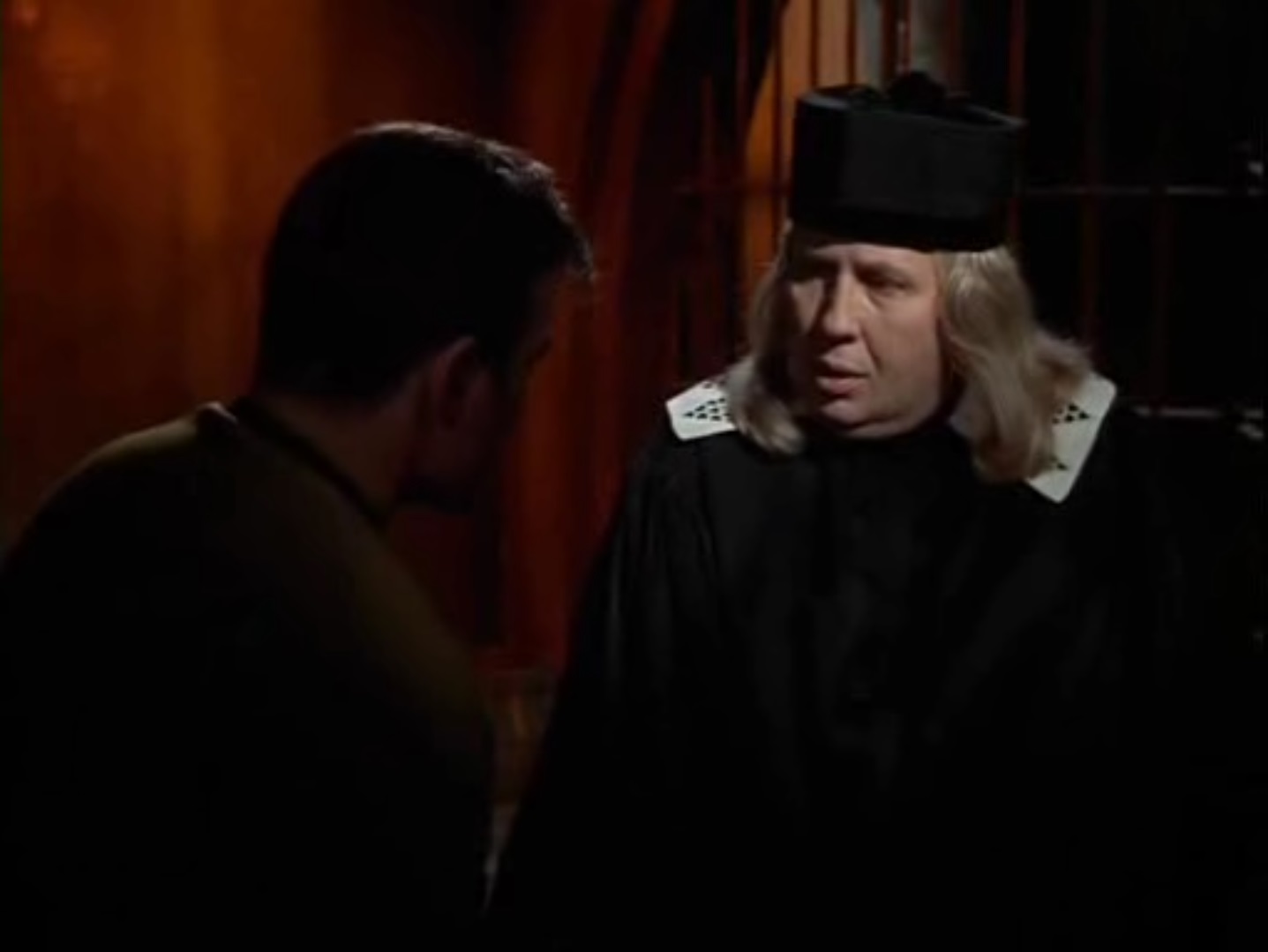
"Just give the book back. No one will press charges."
Though something of a cul de sac in terms of development of the setting (time travel on Sarpedon only goes to Sarpedon, and the system blows itself up at the end of the episode), it is the opposite of a bottle show. There is absolutely nothing wrong with this episode, and so much that is right.
Five stars
Historically Inaccurate

by Erica Frank
In this episode, we see a mirror-image of the usual dynamic between Spock and Doctor McCoy. The doctor is the rational one, driven to find a solution that lets them get back to the Enterprise—while Spock is distracted by strange circumstances and a pretty lady, and he risks isolating them both because of his emotions.
He attacked McCoy over the epithet "pointy-eared Vulcan"… and although the insult was clear in McCoy's voice, it's also a simple fact: Spock is a Vulcan and his ears are pointy. McCoy has said more directly insulting things to him in the past, but this was apparently his breaking point.
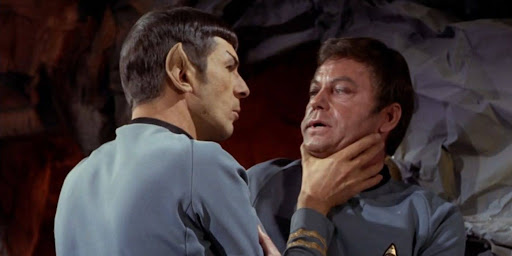
You'd think if he wanted McCoy to shut up, he'd use the Vulcan neck pinch on him. Instead, he grabs him by the throat and brings him in close.
We are supposed to believe that tensions have come to a head because Spock is stuck in the past and atavistic patterns are controlling his behavior. That Spock reverts to savagery because the Vulcans of several thousand years ago were warlike barbarians who ate "animal flesh" and fought for dominance over petty insults.
The problem with that is…
Five thousand years ago on Earth, the Aegean Bronze Age was starting. Imhotep built the Step Pyramid of Djoser; around the same time, Stonehenge was built. Those were ancient human cultures, but they were not so alien from modern humans that a person transported to that time would find their entire nature changed. A modern human thrown back to that time — even with their cell structure and brain patterns adjusted to fit in — would act much like humans do today.
Our records show that human activities and motivations have been very similar throughout history, even as our technology and religions have changed. People complained about politicians, bemoaned their rebellious teenagers, and mourned the passing of beloved pets. Some fought over minor differences and more sensible people denounced those who could not get along with their neighbors. Some were involved in huge, elaborate projects that would not see completion in their lifetimes, and yet they found reason to participate and build on the work of those who had gone before.
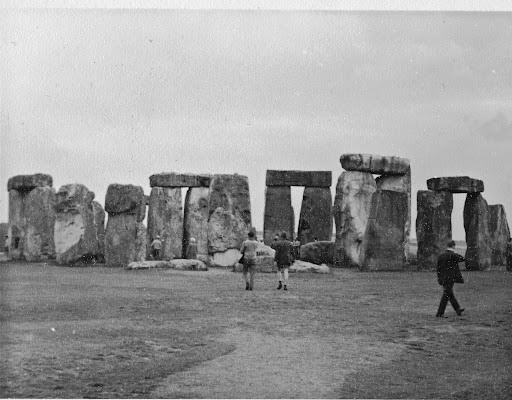
Visitors at Stonehenge, perhaps considering what life might have been like 5,000 years ago on Earth.
"Stonehenge 1960s" photo by Annabel M, CC-BY 2.0
Are we to believe that Vulcans were violent barbarians much more recently than humans? That while humans were developing cuneiform and hieroglyphs, establishing the basics of accounting and medical texts, Vulcans were irrational and vicious—but have since surpassed humans in technology and developed powerful psychic abilities?
Something about this doesn't add up. I can more easily believe that Spock, badly disoriented by the trip through time and deeply worried about his friend's survival, latched onto the first viable way to cope: Accept that they are stuck here and focus on surviving in their new home.
Of course, this is only plausible if one believes that Spock would give up his friendship with Kirk for a life with McCoy and a woman he met an hour ago. That possibility raises even more questions.
Four stars. I can quibble over some of the "science," but the character dynamics were riveting.
Treasure from Trash

by Joe Reid
This week’s episode of Star Trek contained many interesting elements: a star about to go Nova, eliminating a solar system and the desperate race to find survivors. A man with duplicate copies of himself. A civilization with the power to travel in time. All interesting concepts that could fill volumes of science fiction. Sadly, these concepts were cheapened by the unnecessary common plot devices which ran rampant in this episode. From jumping to conclusions to failing to ask questions, there didn’t appear to be any characters in this episode unwilling to make critical mistakes that made situations worse than they already were.
Let’s start our examination on an individual level with Kirk and Atoz. Kirk and crew went to a doomed planet where everyone was gone, looking for people to save. Atoz, having saved everyone, was perplexed as to why these newcomers hadn’t escaped yet. This left us with a comedy of errors that shouldn’t have occurred. Had Kirk or Atoz not jumped to conclusions and taken a minute to fully introduce themselves and state their purposes, all parties would have been allowed to move on with their respective businesses without incident. Instead, we were forced to bear witness to two men fighting so hard to save each other they were willing to almost kill each other.
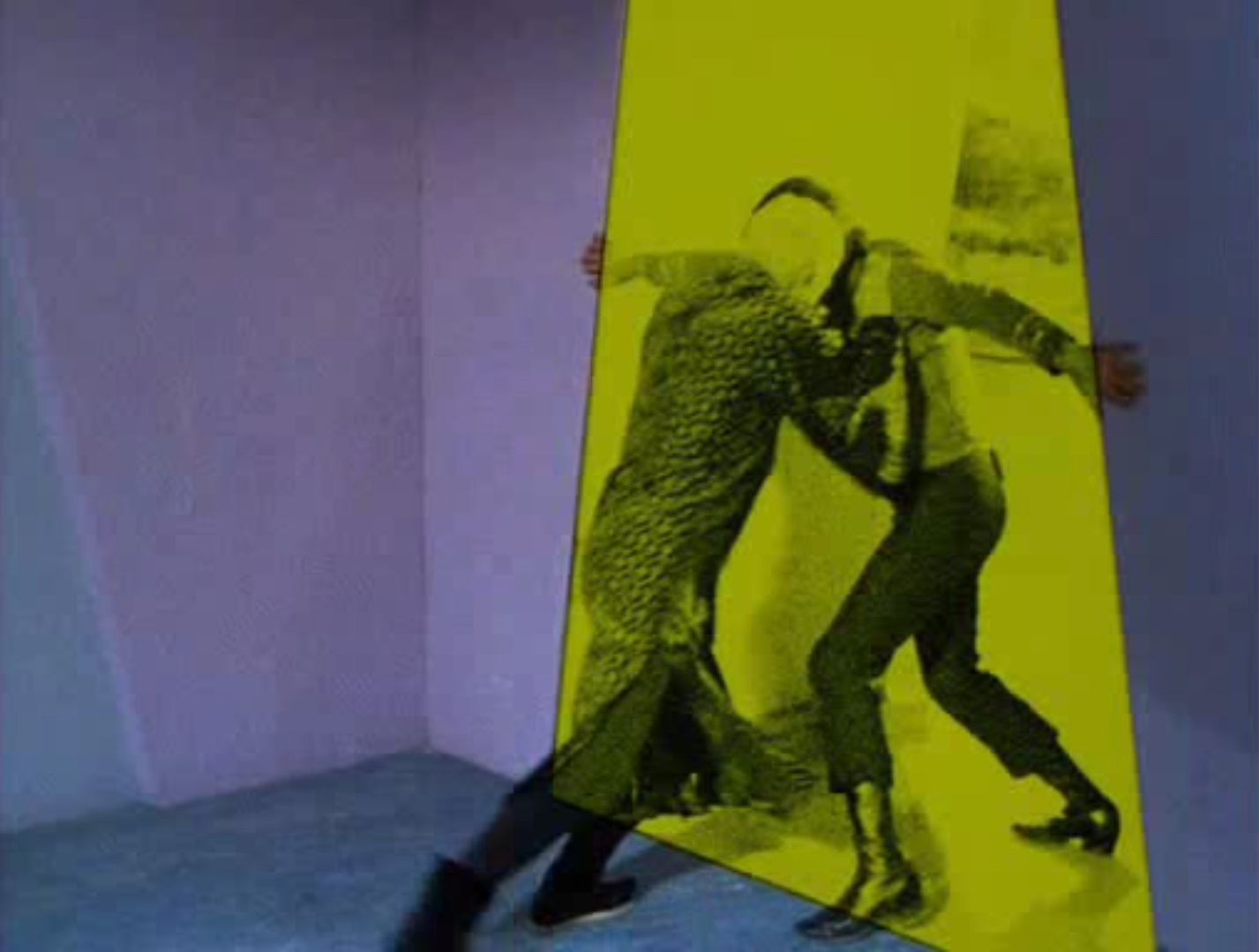
"Kirk, go to your room!"
The second cause of frustration in this episode revolved around the fact that questions were never asked during the times when people were the safest. Again, our two subjects are Atoz and Kirk, but mainly Kirk. Had Kirk asked before he leapt to aid the sound of a screaming woman, he might have saved himself some trouble. Even Spock and McCoy fell into the same situation, chasing after Kirk’s voice as he had the woman. Have none of them ever been taught that the time to ask questions is when you are still at the library, not after you’ve left? Eventually Kirk and crew were able to formulate questions after they found themselves in predicaments. They discovered the answers which led to their salvations. All completely avoidable.
At the end of the day, these mistakes lead to the exploration of fantastical places with many surprises. The journey to the frozen wastes, where Spock and McCoy find the lonely and beautiful prisoner, pushes Spock and McCoy to the brink both physically and emotionally. Kirk has to find unwilling allies in a strange past to save himself from his own prison, and after all that, has to fight to prevent re-imprisonment to save the lives of this crew. I found it amazing that this episode was able to push beyond the cheap narrative devices to deliver a worthy hour of TV. It ultimately rewarded the viewer’s patience for putting up with these forgivable follies to get to some good sci-fi at the end. All gripes aside, I enjoyed watching “All Our Yesterdays”.
Four stars.

![[March 18, 1969] What a way to go! (<i>Star Trek</i>: "All Our Yesterdays")](https://galacticjourney.org/wp-content/uploads/2024/03/690318title-672x372.jpg)


![[October 24, 1968] The New Wave comes to TV (<i>Star Trek</i>: "Is There in Truth No Beauty?")](https://galacticjourney.org/wp-content/uploads/2023/10/681024title-672x372.jpg)
